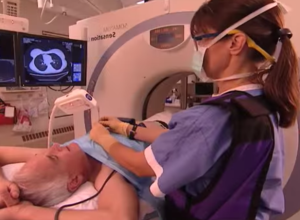 Small air pockets called alveoli comprise the bulk of your lungs’ interior. Over time, though, the areas around and in between these air sacks may receive some damage due to different external factors. The damaged areas of the lungs may develop scar tissues, also called pulmonary fibrosis. These thick tissues make it hard for your lungs to expand, making your breathing more difficult.
Small air pockets called alveoli comprise the bulk of your lungs’ interior. Over time, though, the areas around and in between these air sacks may receive some damage due to different external factors. The damaged areas of the lungs may develop scar tissues, also called pulmonary fibrosis. These thick tissues make it hard for your lungs to expand, making your breathing more difficult.
Who Gets It?
There are different reasons behind pulmonary fibrosis. For instance, prolonged exposure to toxins could make you more prone to lung damage and scarring. These pollutants include silica dusts, asbestos fibres, and bird droppings, among many others. Chemotherapy and radiation treatment of the chest may also result in scarred lungs. Lung diseases, such as pneumonia and tuberculosis, may also damage and scar the lungs.
What are its Complications?
Pulmonary fibrosis prevents your lungs from taking enough oxygen you need. As such, your body works harder to take in as much air as it can. Individuals with scarred lungs experience shortness of breath, and aching muscles and joints. Dry cough, weakness and weight loss are also evident. Through time, pulmonary fibrosis may lead to respiratory failure, and may even increase your risk of lung cancer.
How is it Treated?
No treatment can bring scarred portions of the lungs back to its original state. However, some drugs can help prevent further lung scarring. For instance, some healthcare practitioners and patients buy pirfenidone from Canada to slow down pulmonary fibrosis. People with scarred lungs may also benefit from pulmonary rehabilitation, which aims to improve breathing and endurance with exercise, proper diet, and counseling.
How can You Prevent It?
Prevention is always better than cure. You can prevent lung scarring by keeping in mind these tips:
- Avoid smoking. Smoking increases your risk of lung diseases, which can cause your lungs to scar
- Protect yourself from lung hazards at work by wearing personal protective gears
- Get physical. An active lifestyle improves the endurance of your lungs, making them less vulnerable to damage and scarring
- Eat healthy. By eating right, you are keeping lung diseases at bay
Lung scarring may ultimately lead to death. By keeping your lungs healthy, you are reducing the risk of developing this potentially fatal condition.

